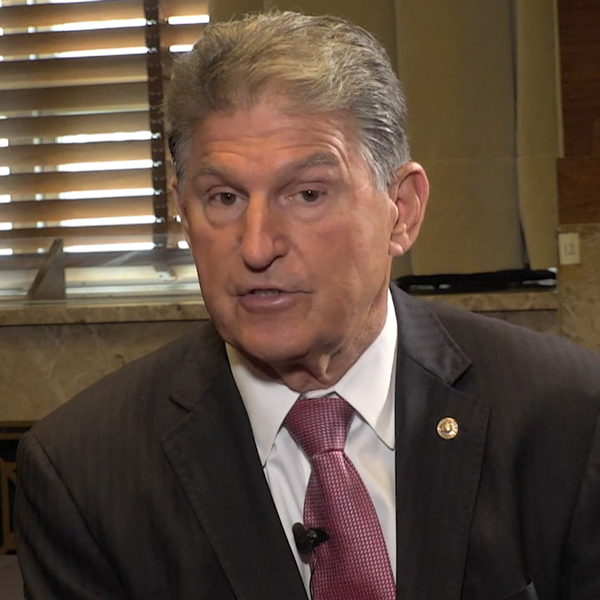Organizers of the Edison Electric Institute’s Road to Net Zero conference knew the kind of “get” they had for their closing session Thursday. It was Sen. Joe Manchin (D-W.Va.), chair of the Senate Energy and Natural Resources Committee and a vote President Biden can’t afford to lose in the 50-50 Senate.
As EEI President Tom Kuhn observed, “If any clean energy legislation makes its way through Congress to the president’s desk, Sen. Manchin will have a lot to say about that.”
During an interview by American Electric Power (NASDAQ:AEP) CEO Nick Akins, taped in the committee’s hearing room, Manchin ruminated on power and the legislative process and shed some light on his legislative discussions with the White House.
He also called for speeding up infrastructure permitting and preventing nuclear plant retirements. He made a pitch for legislation he and Sen. Debbie Stabenow (D-Mich.) introduced in March to provide incentives to manufacturers of advanced energy technologies that invest in rural communities that have lost manufacturing and traditional energy sector jobs.
He also expressed opposition to widespread deployment of electric vehicles by 2035, saying supply chain issues would make the U.S. vulnerable to China and other nations. “I know there’s a change coming, OK? But I’ve always been very, very cautious about this. I have spoken out pretty loudly about it. I’m concerned that they’re setting a very aggressive timetable,” he said.
And he said the federal government shouldn’t be spending billions to install EV charging, though he would support low-interest loans to leverage private investment. “We can do something, but we don’t have to give it away,” he said. “We’re trying to filter that out: What would the market do? What won’t it do? The government should not be giving tax dollars away. I have a little bit of a difference, and I’m working with the White House on that.”
“I believe that Joe Biden is just really a good person. He has more knowledge about how the place is supposed to work than any president we’ve had since Lyndon Johnson,” Manchin said. “He’s been here 36 years. He understands, so when I talk to him, he knows what I’m going through. He understands the challenges that we have.”
“Especially you,” Akins laughed, perhaps referring to Manchin’s status as a Democrat in a heavily red state.
“He’s been very, very understanding, and I appreciate that very much,” Manchin continued. “And he has a vision. And he wants to go big. But there has to be a balance. … We cannot continue to put this much debt on. … Both [parties] have been horrible. Both sides have been irresponsible.”
Manchin said climate change advocates should be working to persuade foreign countries to use the kinds of emission controls U.S. coal plants have deployed rather than forcing the closing of the remaining U.S. plants.
“I just remind people all the time, this is called global climate. It’s not West Virginia climate. It’s not North American climate.” He said there are 504 coal-fired plants in the U.S. and 6,600 worldwide with more than 1,000 more under construction. “There’s 7,600. We have 504. Now come on. Be realistic.”
Asked about the prospects for getting climate change legislation through a Congress as bitterly divided as the current one, Manchin said, “The hardest thing is to get people to [agree] on the same set of facts. … We can agree that we want a cleaner environment and we have a responsibility and climate change is real. For anyone who’s still [climate change] deniers, they’re not going to be active in the decision-making process because they’re already set in their ways.”
He reiterated his support for the regular legislative process with committee markups to consider amendments and further amendments on the Senate floor. He repeated his vow that “I’m not going to blow this place up,” in an apparent reference to his opposition to eliminating the filibuster.
Manchin grew philosophical as he acknowledged his pivotal role in the divided Senate. “I’ve seen people who had power and abused it. And I’ve seen people who sought power destroy themselves by trying to obtain it. And then there’s a moment in time when you have a chance to make a difference. If I can bring the country together and make the process work in this committee room — we’re going to see if we can make it work. If that’s my moment in time, I think it’s well worth it.”





